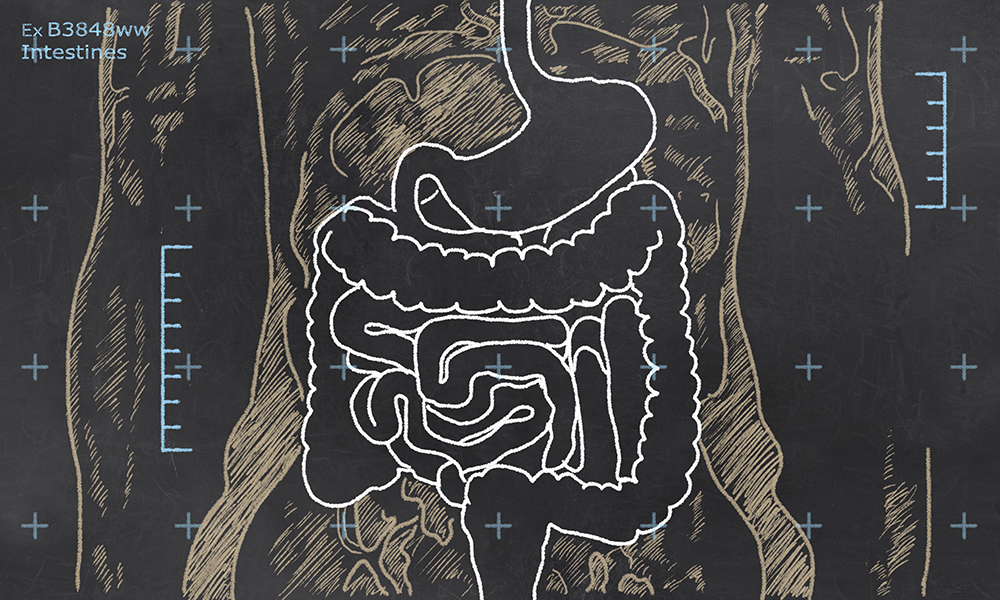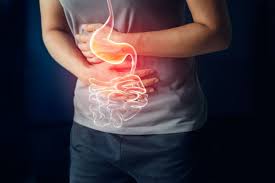Digestive disorders are becoming exponentially more prevalent for a variety of reasons. A majority of the risk factors are environmental: processed food intake, toxic water, stress/trauma, toxic beauty products, polluted air, medical drugs, etc. This article from the Weston A. Price Foundation details a 3 pronged approach to mitigating these factors:
- Eat the right foods.
- Take the right supplements.
- Remove the wrong toxins
Sounds simple right? Let’s see:
How To Restore Digestive Health

🖨️ Print post Chronic disease wreaks havoc on the American populace. One million Americans suffer from AIDS; eight million have cancer, and twelve million battle heart disease. However, there is one disorder that afflicts more individuals than the combined total of all of these other potentially deadly disorders, and, surprisingly, it is rarely mentioned. Thirty-eight million Americans are victims of digestive disorders, including Crohn’s disease, ulcerative colitis, diverticulitis, celiac disease, IBS, constipation, diarrhea, GERD, candida and food allergies.
If these staggering numbers of digestive disorders, along with the pain and discomfort that accompany them, were not enough, there is also the added burden of treatment costs. The economic impact of digestive disorders is $123 billion per year, compared to $17 billion for cancer, $58 billion for neurological disorders, and $88 billion for circulatory problems. Sufferers from IBS (the most common gastrointestinal disorder) incur an estimated $10 billion more in direct medical charges per year than a similar control group of people the same age and gender.
In 1995 at the age of nineteen, I was one of these statistics; I was diagnosed with “incurable” Crohn’s disease. Back in 1995 the incidence of Crohn’s disease was 1 out of every 10,000 people; today, it is 1 out of every 500 to 1,000 people. That is a 10- to 20-fold increase in less than 10 years, and the incidence of all the digestive disorders is increasing. Like many of the sufferers of digestive disorders today, I was given confusing, sometimes contradictory, and often costly “answers” during my search to regain my health. The problem was that nothing worked until I discovered three weapons I used to fight back against my digestive disorder. Those weapons are:
- Eat the right foods.
- Take the right supplements.
- Remove the wrong toxins
Use these weapons and aim them at digestive disorders. It worked for me. It can work for you.
Eat the Right Foods
What constitutes the right foods for digestive health? Eating the right foods for good digestion can be accomplished in four major steps; the first one is to reduce or avoid intake of foods high in hard-to-digest components such as complex sugars and carbohydrates, phytates and gluten.
Bad Carbs
The most critical macronutrient group to consider is carbohydrates. We hear about “low carb” diets, and are beginning to realize that carbohydrates are not always good for our bodies. Also, we know that whole foods are superior to processed foods. However, the constituency of carbohydrates will make them either healthy or unhealthy for digestion. Of primary importance is avoiding foods high in disaccharides (sugars in groups of two) or polysaccharides (compounds consisting of many sugars joined together) and foods rich in the nutrient inhibitors known as phytates.
Disaccharides include lactose (milk sugar) and sucrose. Many people do not produce the enzymes needed to break down disaccharides, which then remain undigested in the colon and become putrefied by the microorganisms that live there. Thus, it’s easy to understand why reducing disaccharides is imperative for those with digestive problems; the more disaccharides ingested, the more putrefaction in the colon–leading to digestive distress. Disaccharide foods include anything containing sucrose (that is, all sugars, including whole sugars like dehydrated cane sugar juice) and unfermented or non-cultured, fluid dairy products such as milk, ice cream and some soft cheeses.
Starches found in grains are polysaccharides; that is, long chains of glucose molecules hooked together. If grains are sprouted or sour-leavened, they are easier to digest because the polysaccharides are somewhat broken down into individual glucose molecules.
Not only do grains contain starch molecules, but grains also contain phytates, which rob the body of minerals such as calcium, iron and zinc, and gluten, a protein found in wheat, barley, oats and rye, that is very hard to digest and causes allergic reactions. Once again, when grains are properly prepared by soaking, sprouting and sour leavening, these components are largely neutralized.
Of course all table sugar should be avoided as well as high fructose corn syrup. (Fructose is a monosaccharide, but high fructose corn syrup also contains sucrose, which is a disaccharide.) Also a problem for those with digestive prolems are potatoes and corn–considered vegetables, but, when cooked, are really starches. One of the worst foods for those with digestive problems is the Jerusalem artichoke (tubers from the sunflower family). These contain complex carbohydrates called inulins, which are extremely difficult to break down.
Another difficult-to-digest food category is legumes or beans, especially soy, and they add to digestive distress because they are high in nutrient inhibitors. However, when fermented, soy foods such as miso, tempe, or natto contain virtually no phytates and are probably fine in small amounts.
Reducing foods rich in polysaccharides and disaccharides is the first step in your quest to recovery. But you need not feel deprived–there are still many foods you can eat. Fermented dairy products such as kefir, yogurt and many hard cheeses are fine. That’s because the disaccharide lactose that they contain is broken down into simple sugars during the fermentation process. Properly prepared grains in small amounts, nuts that have been soaked in salt water and dehydrated and non-starchy vegetables can all be part of your diet. You should eat these vegetables cooked–even vegetables normally eaten raw, such as lettuce and tomatoes, can cause problems for those suffering from digestive disorders.
The Right Oils
Most individuals with digestive disorders have some inflammation which is exacerbated by an overabundance of omega-6 fatty acids. Thus, a major step to regaining digestive health is avoiding all commercial liquid vegetable oils. Trans fatty acids also contribute to inflammation so these must be avoided also.
At the same time, you will need to increase your consumption of foods rich in omega-3 fatty acids, including salmon and other wild-caught cold water fish, eggs from pastured chickens, walnuts, organ meats and flax seeds and a small amount of flax oil.
Key to recovery is cod liver oil, which is not only high in special anti-inflammatory omega-3 fatty acids but also fat-soluble vitamins A and D. Both of these nutrients help fight inflammation and build the immune system, so critical to restoring digestive health, especially in persons with inflammatory bowel disease.
Vitamin D is important for those with Crohn’s disease and ulcerative colitis as they often become vitamin D deficient, allowing for rickets-like indications. When I was ill with Crohn’s disease, I developed rickets-like symptoms; my bones were robbed of vitamin D and my legs became bowed. Fortunately, I followed these steps before it was too late–and restored my digestive health, which, in turn, took care of my other health challenges.
Some are concerned about mercury levels in cod liver oil, but testing of high quality cod liver oil reveals that these oils are virtually free of mercury and other heavy metals–especially if the fish are caught in the cold waters of Iceland or Norway.
Incidentally, Icelanders are blessed with longevity and intelligence. Cod liver oil certainly plays a role in their good health. Icelandic women–while they are pregnant–consume two teaspoons of cod liver oil a day, and cod liver oil is served at breakfast, even in hotels!
Anti-Microbial Saturated Fats
Certain fats have anti-microbial properties. People with digestive disorders often suffer from
candida (yeast), fungi, parasites, viruses and other unfriendly microorganism invasions as a result of damaged digestive terrain. Anti-microbial saturated fats help to combat these; the two best sources are coconut oil and butter from grass-fed dairy cattle. Coconut oil is anti-viral, and contains lauric, capric and caprylic acids–recommended to combat candida. Coconut oil is so beneficial for digestive health that years ago a person suffering from Crohn’s disease wrote to “Dear Abby” insisting that eating macaroons eliminated symptoms of the disease. The macaroons contained sugar, white flour, bad oils and guess what. . . 6 to 8 grams of fats from coconut! Even amidst the bad ingredients, the fatty acids in coconut oil helped this person with Crohn’s!
Grass-fed, organic butter also contains anti-microbial fatty acids including butyric acid, which has strong anti-fungal effects. Coconut oil and butter are not only anti-microbial, but they also help heal the lining of the gut; therefore, they are preferred for cooking, baking or eating right off the spoon.
Soups and Stocks
In the old days, people made soups and stocks out of animal bones and cartilage, but no longer. The elimination of soups and stocks from our diets has contributed to digestive problems as well as joint problems. Stock and soups made from the bones of chicken, turkey, duck, beef, lamb and fish are anti-microbial, anti-inflammatory, and contain nutrients which help build the integrity of the digestive tract. When a person is suffering from a digestive disorder, a soup based on bone stock can bring fast relief.
Consuming soups and stocks can bring about results similar to those used by practitioners who give drug therapies to combat inflammatory bowel diseases such as Crohn’s disease and ulcerative colitis. While medications simply mask the problem, soups or stocks get to the root of the digestive disorder, to soothe and help bring healing to the condition.
The Right Supplements
Those suffering from digestive disorders face a bewildering array of products said to help with digestive problems–from alka-seltzer for the stomach to herbs for parasites. During my illness, I tried most of these nostrums, to no avail. Here are the ones that worked.
Whole food probiotic
Essential to digestive health is taking a whole food probiotic. Healthy bacteria found in healthy soil and plants are missing from our modern food supply. They protect the plants in the soil, and also protect humans who ingest them. A major discovery in the battle against digestive disorders is how beneficial bacteria can help people with “leaky gut syndrome,” as the use of beneficial bacteria can reduce the hyper-permeability of the gut. Before the days of modern hygiene and chemical farming, these bacteria were in the soil and hence on the surface of our vegetables; they thus helped colonize the gut with beneficial flora whenever people ate raw fruits and vegetables–and whenever children played in the dirt! Homeostatic soil organisms (HSO) were the key to my own recovery and the basis of Primal Defense, the first product that I developed for Garden of Life.
A recent, soon-to-be-published, double-blind placebo controlled study, carried out by Linda Kim, ND and her team at Southwest College of Naturopathic Medicine, found that ingestion of homeostatic soil organisms (HSO) for as little as 90 days brought cases of very “leaky gut” down to high levels of normal; that is greatly significant to sufferers of food allergies–which is primarily a digestive problem, not an environmental one.
In this study, HSOs also reduced the population of bad bacteria in the gut. Increased urinary indicators in test subjects showed that the level of dysbiosis went from a high level to within normal range after use of HSOs for the same 90-day period, even without dietary changes.
Additionally, probiotics containing HSOs enhance the immune system and detoxify the colon; those are major benefits for all people, but especially for those who suffer from digestive disorders.
Lacto-fermented foods such as yogurt and sauerkraut also provided healthy bacteria in traditional diets and these should be part of the diet of any person suffering from digestive problems. But probiotic formulations can help “jump start” the system in those with serious digestive problems as they will quickly populate the gut with beneficial organisims.
Digestive Enzymes
Enzymes help break down the foods we eat. Broad-spectrum, plant-based enzyme formulations contain high levels of carbohydrases–lactase to break down lactose, sucrase to break down sucrose, etc. People with digestive problems cannot break down disaccharides very well, but many still choose to eat foods high in disaccharides. Digestive enzymes help break down these food and can help break the vicious cycle that afflicts so many with digestive problems. Additionally, these formulations contain proteases–enzymes that digest proteins–which assist in the breakdown of harmful accompaniments sometimes ingested with meals, such as pathogenic microorganisms found in improperly prepared food from food handlers who did not thoroughly wash their hands.
Whole food fiber
People with digestive disorders need their whole food probiotic supplements to help clean and seal up the gut, along with enzymes to help break food down so that it will not putrefy in the colon. What is needed next is a way to move the waste out, especially the toxins generated by the dying bad bacteria. A whole food fiber blend is the answer.
Whole food fiber products for sufferers of digestive orders should not contain psyllium; it can cause gas and bloating, and it contains compounds that will exacerbate their disorder. Garden of Life has developed a whole food fiber product called Super Seed containing flaxseed, chia, sesame or pumpkin seed and legumes, all of which have been fermented. It is recommended for constipation and minor digestive disorders. For best results, the product should be consumed first thing in the morning and just prior to bedtime.
However, those suffering from inflammatory bowel disease, Crohn’s disease, ulcerative colitis, or diverticulitis should be cautious with additional fiber. In those cases it might be more prudent to use some type of detoxifying clay; one to two tablespoons of clay twice a day is beneficial for those with IBD.
Remove the Wrong Toxins
The third component of our healing strategy involves removal of harmful toxins.
Air
We are inundated with commercials for purified air, and the indoor air we breathe is extremely important, particularly because we spend the majority of our time indoors. Air purifiers are very affordable and definitely work to reduce molds, yeasts and other microorganisms, minimizing overall exposure and keeping overall health optimal.
I also recommend changing air filters more often, opening windows and having house plants.
Water
Any person with a digestive disorder (and everybody else) should use purified water for drinking and cooking.
Of critical importance is avoidance of chlorine in showers, baths and swimming pools. Each shower we take is equivalent to drinking six to eight glasses of tap water; plus, the warm water opens our pores up so that we absorb the chlorine more efficiently.
Chlorine is a harmful toxin, and when it is combined with other chemicals like aspartame, nitrates, or nitrites, it can cause even more damage. To circumvent this, install a simple, carbon-block shower filter, and look into a salt water system for the pool–as it can reduce the free chlorine content by 90 percent or more.
Skin Care and Cosmetics
Anything put on the skin is absorbed systemically; therefore, we should not put anything on our hair or skin that we would not eat! We know that anti-perspirants not only block the lymphatic detoxification, but also introduce aluminum and heavy metals such as lead into the body. Likewise, we absorb the harmful chemicals contained in shampoos and lipsticks. Health food stores sell cosmetics, shampoos, creams, etc. that do not contain these unwanted elements. It is worth looking into.
You Can Win
The battle for healthy digestion can be won by eating the right foods, taking the right supplements, and removing toxins–three effective weapons that can help you win the battle against digestive disorders. You don’t have to be a statistic. You can fight back and win!
Sidebar
Grim Statistics
- Two of the top five most widely prescribed prescription drugs in this country are for digestive disorders. The other three drugs in the top five are prescribed for heart disease-related conditions and arthritis.
- Colorectal cancer, one of the most severe digestive or gastro-enterological diseases, is the second leading cause of cancer deaths.
- More than 60 million Americans experience heartburn at least once a month, and about 25 million are daily sufferers, leading to gastro-esophageal reflux disease (GERD), which, if left untreated, can lead to more serious conditions.
- As many as 37 million episodes of diarrhea occur annually among America’s 16.5 million children under five. This problem leads to three million physician visits each year and 163,000 hospital visits; it also accounts for 13 percent of all hospital stays for children in this age group.
- Irritable Bowel Syndrome (IBS) alone affects almost 20 percent of the adult population in America.
REFERENCES
- Digestive Disorders Foundation [homepage on the Internet]. London: NW1 4LB; Available from: http://www.digestivedisorders.org.uk.
- Johns Hopkins Bayview Medical Center. JHBMC: Motility and Digestive Disorders: Facts. Available from : http://www.jhbmc.jhu.edu.
- Johns Hopkins Bayview Medical Center. JHBMC: Motility and Digestive Disorders: Statistic. Available from: http://www.jhbmc.jhu.edu.
- Rubin, Jordan S. “Healing the digestive tract” [audiocassette]. December 11-14, 2003 SOHO Expo, producer. Orlando, FL.
- Rubin, Jordan S., N.M.D., and Brasco, Joseph, M.D. Restoring your digestive health: how the guts and glory program can transform your life. Kensington Publishing Corp., New York, NY (2003)
This article appeared in Wise Traditions in Food, Farming and the Healing Arts, the quarterly magazine of the Weston A. Price Foundation, Summer 2004.


